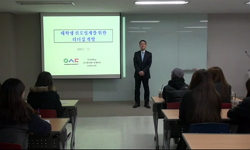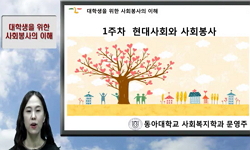대학생들이 많은 시간을 보내고 오랜 시간 노출되는 환경인 대학환경 속에서 참여하는 교내활동 참여도, 대학생들이 사회활동에 참여할 수 있는 기회인 외부활동 참여도, 일상생활 속에서 ...
http://chineseinput.net/에서 pinyin(병음)방식으로 중국어를 변환할 수 있습니다.
변환된 중국어를 복사하여 사용하시면 됩니다.
- 中文 을 입력하시려면 zhongwen을 입력하시고 space를누르시면됩니다.
- 北京 을 입력하시려면 beijing을 입력하시고 space를 누르시면 됩니다.
https://www.riss.kr/link?id=T14901730
- 저자
-
발행사항
서울: 서울여자대학교 사회복지·기독교대학원, 2018
-
학위논문사항
학위논문(석사) -- 서울여자대학교 사회복지·기독교대학원 , 인성교육학과 인성교육전공 , 2018. 8
-
발행연도
2018
-
작성언어
한국어
- 주제어
-
DDC
170 판사항(20)
-
발행국(도시)
서울
-
기타서명
Relationships between the Degrees of Class Activities, Out-of-Class Activities, Leisure Activities and the Character Development Level of University Students
-
형태사항
80p.: 삽도; 26cm.
-
일반주기명
서울여자대학교 논문은 저작권에 의해 보호받습니다.
지도교수:홍순혜
부록: 2. 설문지
참고문헌: p.62-69 -
UCI식별코드
I804:11036-200000115518
- 소장기관
-
0
상세조회 -
0
다운로드
부가정보
국문 초록 (Abstract)
대학생들이 많은 시간을 보내고 오랜 시간 노출되는 환경인 대학환경 속에서 참여하는 교내활동 참여도, 대학생들이 사회활동에 참여할 수 있는 기회인 외부활동 참여도, 일상생활 속에서 참여 가능한 여가활동 참여도가 대학생의 인성발달 수준에 미치는 영향을 분석하는 것이 본 연구의 목적이다. 이 목적을 달성하기 위하여 서울 및 수도권 소재 4년제 대학에 재학중인 2,3,4학년의 남녀대학생 350명을 대상으로 편의 표집하였고 최종 317개의 자료가 사용되었다. 자료 분석 방법으로는 독립변수인 교내활동, 외부활동, 여가활동 참여도가 종속변수인 대학생의 인성발달 수준에 미치는 영향을 확인하기 위하여 다중회귀 분석을 실시하였다.
연구결과 대학생의 교내활동 참여도는 인성발달 수준과 그 하위요인 7개(긍정적 생활태도, 심미적 소양, 도덕적 판단력, 타인에 대한 존중, 타인에 대한 용서와 관용, 사회구성원으로서의 역할과 책임, 세계시민정신)에 모두 통계적으로 유의한 영향을 미치는 것으로 나타났다. 또한 외부활동 참여도는 심미적 소양에는 통계적으로 유의한 부(-)의 영향을 미치고, 세계시민정신에는 통계적으로 유의한 정(+)의 영향을 미치는 것으로 나타났다. 여가활동 참여도는 인성발달 수준과 타인에 대한 존중, 심미적 소양, 사회구성원으로서의 역할과 책임, 긍정적인 생활태도, 도덕적 판단력, 세계시민정신의 발달에 영향을 미치는 것으로 나타났다.
본 연구를 통해 확인된 대학생들의 인성발달 수준과 관련 깊은 활동요소들이 이후 대학생의 인성발달을 위한 환경과 기회제공의 방향에 필요한 기초자료를 제공하고 대학생들을 위한 인성교육의 방향, 방법, 내용을 선정하는데 도움이 되기를 기대해본다.
다국어 초록 (Multilingual Abstract)
The purpose of this study is to investigate the relationships between the degrees of university students' class activities, out-of-class activities, leisure activities and the character development level. Data were collected from 328 undergraduate stu...
The purpose of this study is to investigate the relationships between the degrees of university students' class activities, out-of-class activities, leisure activities and the character development level. Data were collected from 328 undergraduate students from 33 universities based in Seoul and its satellite cities. 317 except 11 incomplete data were used for the analysis.
Multiple regression analysis revealed that the degrees of university students' class activities and leisure activities are associated with the character development level. However, the findings show that the degree of out-of-class activities did not have a statistically significant effect on the character development level. In
specific, the relationships between students' three activities and the seven sub-constructs of character development (positive attitudes, pursuit of the common good, moral judgment, understanding and love for others, forgiveness and compassion for others, sense of roles and responsibilities as a community
member, and world citizenship) are as follows:
First, the findings show that the students' class activities have a statistically significant correlation with all the seven sub-constructs of character development while their out-of-class activities are associated with only two sub-constructs: pursuit of the common good and world citizenship. Second, the findings show that the students' leisure activities are correlated with the six sub-constructs except forgiveness and compassion for others.
These findings suggest that educators should develop students' class, out-of-class, and leisure activities tailored to the purpose and needs for students' character development and universities should provide the students with as many opportunities as possible to actively participate in the activities meeting their
needs.
목차 (Table of Contents)
- I. 서론··························································· 1
- 1. 연구의 필요성 ············································· 1
- 2. 연구의 목적 ··············································· 5
- II. 이론적 배경··················································· 6
- I. 서론··························································· 1
- 1. 연구의 필요성 ············································· 1
- 2. 연구의 목적 ··············································· 5
- II. 이론적 배경··················································· 6
- 1. 대학생의 인성발달·········································· 6
- 1) 인성···················································· 6
- 2) 인성발달··············································· 11
- 3) 대학생 인성발달의 중요성 ······························· 13
- 2. 대학생 인성발달 수준에 영향을 미치는 요인················· 17
- 1) 교내활동 및 외부활동 참여도···························· 18
- 2) 여가활동 참여도········································ 20
- 3) 기타 요인들 : 인성의 중요도 인식정도, 가족관계 만족도를 중심으로 ················································· 22
- III. 연구문제 및 연구모형········································ 23
- 1. 연구 문제················································· 23
- 2. 연구 모형················································· 24
- IV. 연구 방법··················································· 25
- 1. 연구 대상················································· 25
- 2. 측정 도구················································· 25
- 1) 대학생의 인성발달 수준································· 26
- 2) 대학생의 교내활동 참여도 ······························· 28
- 3) 대학생의 외부활동 참여도 ······························· 29
- 4) 대학생의 여가활동 참여도 ······························· 31
- 5) 통제변수··············································· 32
- 3. 자료 수집 방법············································ 32
- 4. 자료 분석 방법············································ 33
- Ⅴ. 결과························································ 34
- 1. 연구 대상자의 인구사회학적 특성··························· 34
- 2. 연구 변인들의 기술통계치·································· 36
- 3. 독립변수들(교내활동 참여도, 외부활동 참여도, 여가활동 참여도)간의 상관관계 ············································· 39
- 4. 연구모형 검증··············································40
- 1) 대학생의 인성발달 수준에 영향을 미치는 요인들 ·········· 40
- 2) 대학생의 긍정적인 생활태도에 영향을 미치는 요인들······ 42
- 3) 대학생의 심미적 소양에 영향을 미치는 요인들············ 43
- 4) 대학생의 도덕적 판단력에 영향을 미치는 요인들 ·········· 45
- 5) 대학생의 타인에 대한 존중에 영향을 미치는 요인들······· 47
- 6) 대학생의 타인에 대한 용서와 관용에 영향을 미치는 요인들 48
- 7) 대학생의 사회구성원으로서의 역할과 책임에 영향을 미치는 요인들 ················································· 50
- 8) 대학생의 세계시민정신에 영향을 미치는 요인들··········· 52
- Ⅵ. 논의························································ 54
- 1. 결론 및 논의와 함의······································· 54
- 1) 결론··················································· 54
- 2) 논의··················································· 56
- 3) 함의··················································· 58
- 2. 연구의 의의 ··············································· 60
- 3. 연구의 제한점 및 후속연구를 위한 제언····················· 60
- 참고문헌····················· 62
- 부록····················· 70
- 영문초록····················· 79












